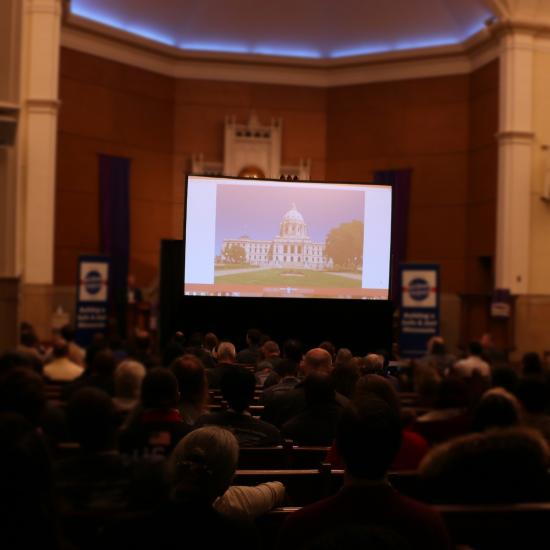5 Things to Watch for in Minnesota’s 2019 Legislative Session
Tuesday, January 8, 2019 marked the beginning of a new state legislative session. Since Minnesota runs on a two-year budget cycle, our state government is constitutionally required to pass a balanced budget in its first year. This means that from January 8 to May 19, Minnesota’s 201 legislators and the governor will shape a budget of over $46 billion, not to mention any changes to state law.
Now that the first legislative session has kicked off, we will continue our foundation-wide effort to increase interest and engagement in government spaces where decisions about public policy are made. Besides advocating for Wilder’s priorities and developing the legislative skills of Indigenous people and people of color in the Community Equity Program, we will also be providing a regular series of updates like this one to recap key public policy issues and decisions being made at the State Capitol.
Here are five things to watch as we start Minnesota’s 2019 legislative session:
1. A New Governor – For the first time in eight years, we will have a new executive signing bills passed by the legislature. Gov. Tim Walz and Lt. Gov. Peggy Flanagan ran on a broad agenda that included funding for education, affordable housing, transportation and other issues.
2. A New House Majority – In a slightly unexpected turn of events in this year’s midterm elections, our state House of Representatives flipped from Republican to Democratic control. The DFL now holds a 75-59 seat advantage to match the GOP’s 34-33 seat majority in the senate, giving Minnesota the only divided legislature in the nation.
3. Saint Paul Lawmakers Leading in the House – The new House Majority also swept a number of veteran Saint Paul lawmakers into the chair position for many high-profile committees:
- Rep. Dave Pinto: Subcommittee on Early Childhood
- Rep. Rena Moran: Health and Human Services Policy
- Rep. Alice Hausman: Housing Finance and Policy
- Rep. John Lesch: Judiciary Finance and Civil Law
- Rep. Carlos Mariani: Public Safety and Criminal Justice Reform Finance and Policy
4. Early Deal Making – Over a recent dinner, Senate Majority Leader Paul Gazelka and Speaker of the House Melissa Hortman seemed to come to an agreement on a number of non-controversial items that were vetoed at the end of the 2018 session. Is this a positive sign for a healthy bipartisan session, or will we look back in May as the last collective act of the session?
5. A Tricky Budget Forecast – The November forecast showed a healthy $1.5 billion surplus for the upcoming biennium, but a deeper dive into the numbers show cause for concern. Adjustments for inflation eat away a good deal of the projected surplus and a pessimistic outlook on growth have many budget watchers preaching caution on large spending increases or tax cuts this session.
While elected officials make the final decisions, it is essential for individuals and organizations to engage in the legislative process and help inform those decisions. Wilder will be active and engaged this session, working to pass and protect policies that impact our community in positive ways. We hope that our staff, participants and broader community find time to be active and engaged during the next five months.
